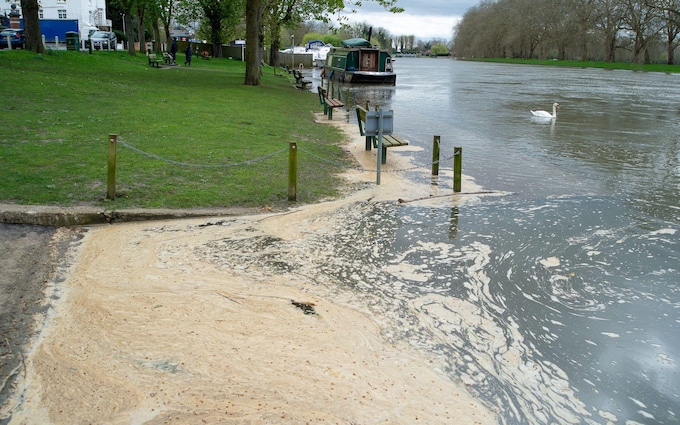Worst rivers in the country are so contaminated they could make people ill
2024-06-25 HaiPress

Sewage floats on the River Thames in Datchet,Berkshire
Credit: Maureen McLean/Alamy
Up to nine in 10 rivers in the Home Counties are polluted and in poor health,tests have shown.
Environmental charity Earthwatch invited thousands of people across Britain to take samples of rivers between June 7 and 10.
They tested for levels of two polluting nutrients,nitrate and phosphate,which are commonly found in domestic and industrial waste,sewage and in the fertilisers that wash off farmland.
The results showed Hertfordshire and Cambridgeshire had the worst water quality,with 91 per cent and 89 per cent of river samples showing unacceptable levels of pollution. Overall,75 cent of samples from rivers across Britain showed worrying levels of contamination,rising to 89 per cent in the Thames and Anglia regions.
The new results showed a general north-south divide,with 90 per cent of the worst areas in southern England. In contrast,90 per cent of the best areas were in northern England,Scotland or Wales.
Only Derbyshire and Northumberland had no rivers with unacceptably high nitrogen and phosphate pollution levels.
Prof Sir Chris Whitty,chief medical officer for England,has warned that river sewage is becoming a serious public health concern,and that bathers and other recreational river users could become seriously ill by ingesting bacteria.
As part of its Clean Rivers Campaign,The Telegraph is calling for action to stop water companies as well as industrial agriculture and urban waste producers from polluting England’s beauty spots.

Prof Sir Chris Whitty has said river bathers could become seriously ill if they swallowed the water
Credit: Jamie Lorriman
Sasha Woods,director of science and policy at Earthwatch,said: “These results are truly disturbing. Freshwater is essential for ecosystems and key to survival on our planet,but the new report clearly shows that the UK’s rivers are in poor health.
“The picture around London and the Thames river basin is particularly dire. Our rivers have been historically stressed by farming and we’re seeing this being made worse by inappropriate or limited sewage treatment.
“The Government has committed to protect 30 per cent of land for nature by 2030 – that will be meaningless if the rivers and streams running through the land,the arteries of life,are diseased.”
High levels of nutrients can cause excessive plant and algae growth,high levels of bacteria and decreased oxygen levels in the water,affecting plants and animals.
Less able to support aquatic life
The worse the nutrient pollution gets,the less able a river is to support aquatic life including fish,insects and mammals such as water voles,the charity said.The testing programme mirrors some of the outcomes from a recent report by the Office for Environmental Protection (OEP) which found “most of England’s water bodies are in an unsatisfactory state”.
Dame Glenys Stacey,OEP chairman,said: “As things stand,the Government will not meet its ambition that most water bodies will be on the road to good condition or already in that state by 2027.”
The latest Water Framework Directive monitoring shows that 17 per cent of water bodies are in a poor state,63 per cent are in an average state (moderate) and 16 per cent are in good state.
A study by Wildlife and Countryside Link and The Rivers Trust found more than 80 per cent of England’s rivers and lakes contained a mixture of drugs,pesticides and forever chemicals.
The Department for Environment,Food and Rural Affairs was unable to comment in a pre-general election period.

